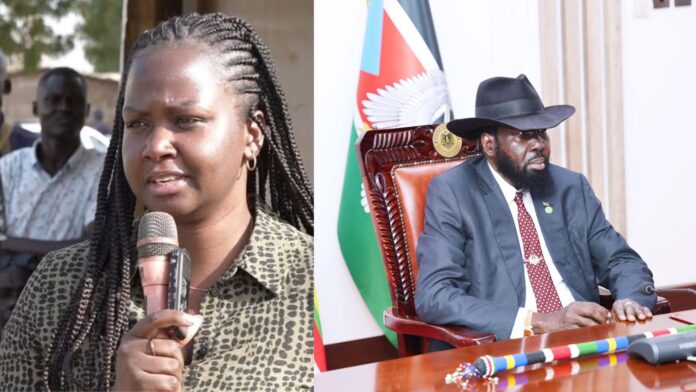JUBA SOUTH SUDAN: On Friday, August 23, Adut Salva Kiir Mayardit, the daughter of South Sudanese President Salva Kiir, was sworn in as the Senior Presidential Envoy for Special Programmes.
It was a move designed to signal a new generation of leadership, but to many, it was just the latest sign of a deeper problem.
The appointment, which was a subject of a presidential decree just two days prior, has been widely condemned as a textbook case of high-level nepotism.
Adut’s new role is a powerful one, placing her in charge of overseeing her father’s government initiatives, coordinating investment, and managing international partnerships.
While her background running the Adut Salva Kiir Foundation may offer some experience, critics argue it pales in comparison to the immense power she has been granted.
This isn’t an isolated incident, but rather the latest thread in a long-standing pattern.
Just last year, President Kiir appointed his son, Thiik Salva Kiir Mayardit, as Deputy Executive Director in the Office of the President.
Even earlier, in 2017, his brother-in-law, General Gregory Deng, was made Governor of the Upper Nile State.
The most damning evidence of this family’s growing influence comes from a 2024 report by the anti-corruption group, The Sentry.
The report revealed that a staggering 23 members of the Kiir family, including his wife and several of his children and grandchildren, hold shares in businesses that are vital to the country’s economy.
For many in South Sudan, Adut Kiir’s appointment isn’t about her qualifications; it’s about the continued consolidation of power and wealth within a single family.
It’s a move that raises serious questions about who truly benefits from the country’s leadership and whether justice and meritocracy have a place in the halls of power.

